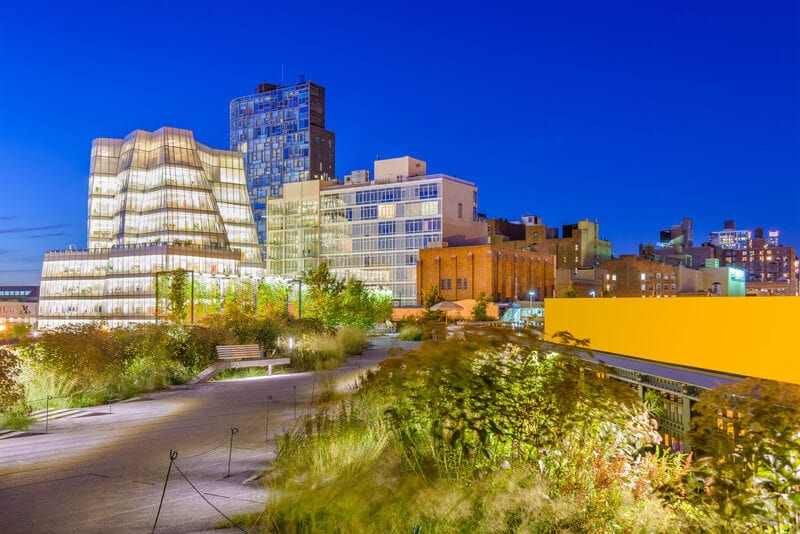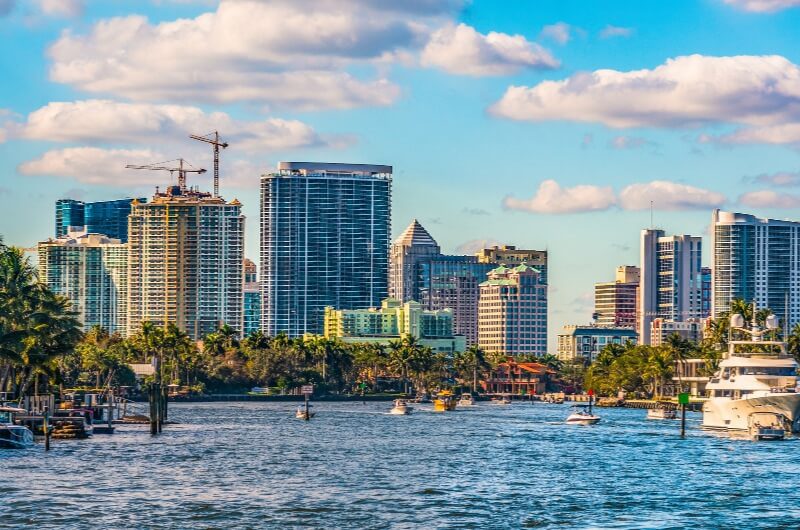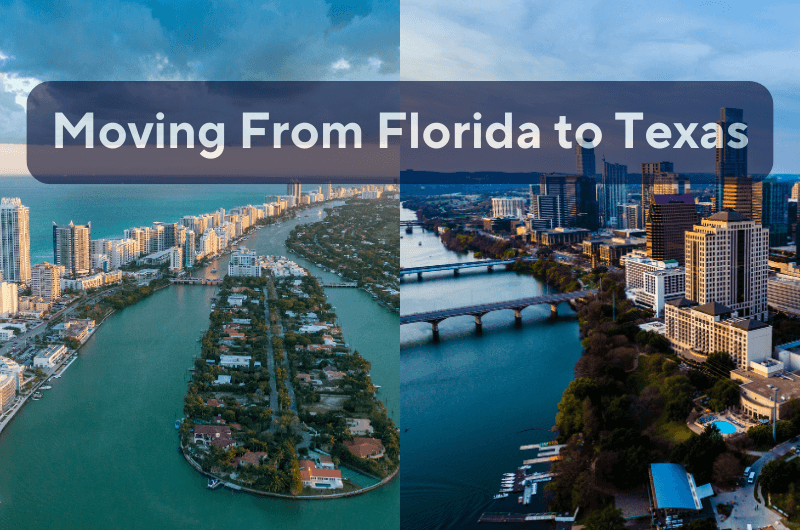Summary:
Choosing a neighborhood is just one of many tasks in the moving process. Once you picked your target neighborhoods, you will be sure you are in for the big city. This guide takes you by hand.
These calculations are what lots of New Yorkers later make when deciding where to live. Do I want to live alone or get a roommate? Do I need a park nearby or far? Can I live off of a single subway line? What will all of this cost me?
In a city where lots of households are renters or paying above their yearly income to rent, price is usually the major factor that renters have to consider when selecting where to live in NYC.
For newcomers in New York, this may sound frustrating and even if you can afford to live anywhere you want, there will also be trade-offs.
Below are 12 things to consider when selecting a neighborhood in NYC.
Choosing the NYC Neighborhoods
There are varieties of neighborhoods in New York City. Before you choose a particular area as your perfect fit, check the factors below:
1. Ask the Right Questions
Ask yourself what are the things you consider as important features of a neighborhood. What do you find special in a neighborhood? Don’t forget that you are not only considering your personal preferences here but the entire members of your family. Do you like:
- Calm streets or a busier, active environment?
- Trees and parks?
- Closeness to shopping and restaurants?
- Older neighborhood or a newly developed?
- Close community or anonymity?
As you navigate through these questions, look into the actual needs of your family members. Are there younger kids in your home who will need to walk to school? If there is no car for every member of your family, will access to public transit be needed by some of you?
2. Crime Rates
Safety is the priority of many homebuyers when selecting a good neighborhood. A neighborhood with a lower rate of crime is safer and also can keep property values on the high side in the coming years.
To check: You can start with local law enforcement agencies as they often monitor crime statistics, so you can start from there. You can also visit SpotCrime, and CrimeReports as both are websites that record curated crime.
The address at the National Sex Offender Registry is also important to find out if sex offenders are living closer to you, and also drive by at different times to experience traffic and noise.
3. Quality of Schools
A well-maintained school is one of the signs of a good neighborhood. And if you have kids, this is probably the first thing to consider when in search of a good neighborhood. You can also go online to research school, which is also worthwhile if you have children of school age.
Are the classes large enough? How well is the performance of the students on standardized tests? Do most of the kids graduate from high school and maybe proceed to college? All other factors to note are how your kids will commute to school. Is public transportation available? Can they walk? Is the street safe? How far is it if you have to drive? These and many more should be put into consideration.
4. Lifestyle
A couple that is starting a family will want various amenities in their preferred neighborhood than adults in need of a place with a slower pace.
Focus on things like trails, parks, proximity to shopping, open spaces, dining, and local attractions. If the area is a homeowner’s association or HOA, figure out the amenities added to your dues, such as clubhouse, pool, or gym.
To check: The internet is yet again your friend. Walkscore gives information about the walkability of a neighborhood as well as car-free access to parks restaurants, and other attractions.
Check Facebook Groups and Nextdoor for neighborhoods, neighborhood newspapers, or any event that they especially host. New parents might look into child-friendly programming at a library, while local running groups will be ideal for a marathoner.
5. Current Housing Value
Determine the value of housing in the neighborhood at the moment, and then ask a Realtor how that fares against the national average value 5 and 10 years earlier. What level of increase has the property experienced? Has the neighborhood developed? Does the Realtor know of any future developments?
Know this that real estate agents are not allowed to give an opinion as “this is a wealthy and safe neighborhood”, or “that is a poor and unsafe neighborhood”, so you might want to check on few neighbors and ask questions of likely neighbors.
6. Find Neighborhoods with Many Transit Options
If you are being moved to another place by your employer for a new job, you will probably limit your accommodation hunt to places that provide a great balance of fast, easy commute and cheap rents or home values.
Some people find that to be outlining neighborhoods or communities closer to major highways that link to large job centers, like downtowns and suburban office parks.
However, even if you plan to commute by car mostly, find out whether your potential neighborhoods also provide access to other transit options. This is so much important if your family commutes enter traffic a lot.
On the contrary, there are neighborhoods, such as Downtown Brooklyn or the Financial District that are primary hubs for subway, making them great alternatives if you want to live near multiple modes of transit.
There is a large presence of Citi Bike, which will expand more in the next few years in parts of Queens, Brooklyn, and Manhattan.
7. Find Out Other Cost of Living Factors
Other factors of cost of living like transportation costs, and further prices, healthcare costs, miscellaneous taxes, utility rates, and more, are so important, too.
Many of these factors are more or less common all over states or regions, restricting the financial advantage of selecting one neighborhood or community over another in a certain commuting area.
For instance, the local and regional difference in gas prices is based so much on state taxes. Regardless of where you live in a state with a high tax, your gas will possibly be costlier than in a state with low-tax.
8. Property Taxes
Ask your Realtor or the city the current tax rate and how much increase it has seen in the past five years. Is there any possibility of an increase? How much might you possibly pay in five years? Factor this amount into your moving budget.
9. Amenities
How far or near are you to a grocery store, cafes, restaurants, and convenience store? If there are nearby bars, how noisy will the area be on the weekends? If you are the type that vibe with the community, consider closest art centers, libraries, houses of worship, and other centers where activities are on. Look into the local newspaper, bulletin boards, or websites to know the current happenings in the neighborhood.
10. Do You Need A Peaceful And Calm Place
New York City, aka the City That Never Sleeps, has a lot of serenity: the quietest neighborhoods in the city as reported by Renthop include the Upper East Side, Bayside, Borough Park, and Brooklyn Heights.
You can check the NYC Open Data portal to see the number of noise complaints received by an area, but don’t put much consideration on noise when looking up a moderately quiet space.
You won’t want to reside in a place where there are ongoing construction works or adjacent to major highways, such as the Brooklyn – Queens Expressway locally known as the BQE.
11. Find Out Your Priorities: Space, Location, Or Price
The three biggest factors that people often consider when selecting a location to live in include size, price, and location.
In NYC, finding an apartment that checks all three factors is like winning a lottery, very uncommon, and possibly get you to wonder how lucky you got.
Immediately you’ve determined that you can then perform some research. If you are mostly concerned about saving money, rental prices are monitored by brokerage MNS in the Bronx, Queens, Manhattan, and Brooklyn, so you can know where the negotiations are.
It is difficult to determine average square footage by neighborhood; however, you may check listing websites like Street Easy which allow you to search for apartments using size, so you can filter out places that are tiny as studios. A lot of people find location (closeness to work, friends, or the gym) as the most important factor.
12. How Important Is The Closeness To Nature To You?
New York may be known as a concrete jungle, but there are numerous areas with much greenery, and we are not only referring to Central Park, which is bounded by some of the most expensive housing in the city.
Pelham Bay Park is the largest and is located in the Bronx, home to horse stables, beaches, and a haven for wildlife. It is also near affordable areas, such as Morris Park and Pelham Bay.
Inwood Hill Park located at the northern end of Manhattan is huge and in proximity to the bustling neighborhoods of Inwood and Washington Heights.
Spend Little Time in the Neighborhoods you are Researching before you Commit
Assuming you’ve done your research and you’ve discovered an apartment in your dream neighborhood: it is near a subway stop, there are few grocery stores nearby, there is a park in proximity, and you find the rent affordable.
You only visited there once, but you found it perfect, you should go ahead and sign a lease right?
Don’t rush. You may find something perfectly represented on paper, but you might begin to notice problems in the long run.
Before you choose a place, arrange repeat visits to the area, and at different times, such as early morning, late at night, during weekend, visit people and ask about the neighborhood’s outdoor.
And remember to check the level of noise and other complaints the area has. This will make sure you get a feel of what living there is like.
Final Words
Moving to another community can leave you with an indifferent experience. On one part, exploring a new place is exciting, meet new faces, make new friends, and gather new opportunities. On the other hand, it is usually painful to leave friends, loved ones, and special memories behind.
During a presumably emotional interlude, the ability to find the right neighborhood or community to settle down your family with reduced stress can make a huge difference.
At Moving APT, our New York movers don’t only move your belongings; they also help you to do some underground research work to give informed advice about the area.



